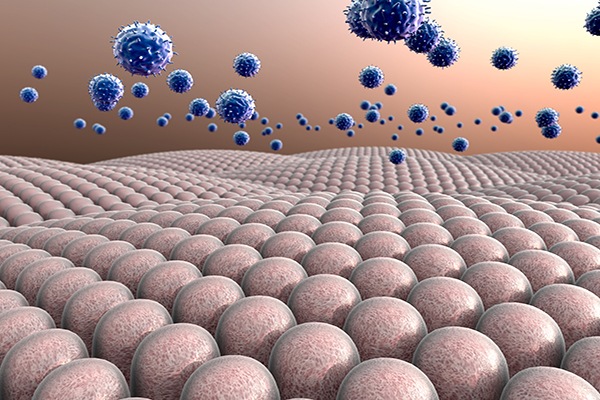CAR T cell therapy has been a game-changer for blood cancers but has faced challenges in targeting solid tumors. Now researchers from the Perelman School of Medicine may have an alternative to T cell therapy that can overcome those challenges. Their research shows genetically engineering macrophages—an immune cell that eats invaders in the body—could be the key to unlocking cellular therapies that effectively target solid tumors. The team was able to show these CAR macrophages can kill tumors both in human samples in the lab and in mouse models. They published their proof-of-concept paper in Nature Biotechnology.
The approach in this study is closely related to CAR T cell therapy, in which patient immune cells are engineered to fight cancer, but it has some key differences. Most importantly, it centers around macrophages, which eat invading cells rather than targeting them for destruction the way T cells do; while T cells are more like a game of Space Invaders, macrophages are like Pac-Man.
Macrophages also have another key difference from T cells in that they are the body’s first responders to viral infections. This has historically presented challenges in trying to engineer them to attack cancer, since macrophages are resistant to infection by the standard viral vectors used in gene and cell therapy.
“We have known how to engineer T cells to do this for years, but the fact that macrophages are innately resistant to the viral vectors that we use in our CAR T cells presented a unique challenge, which we show here we were able to overcome,” says the study’s senior author Saar Gill, an assistant professor of hematology-oncology and a member of Penn’s Abramson Cancer Center.
Read more at Penn Medicine News.








